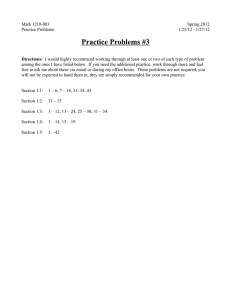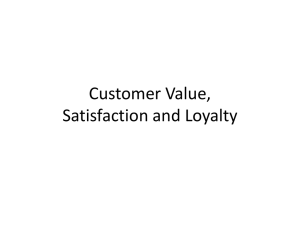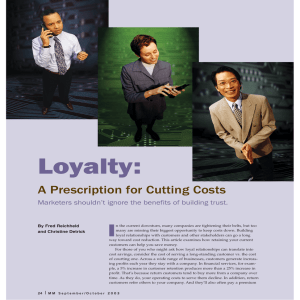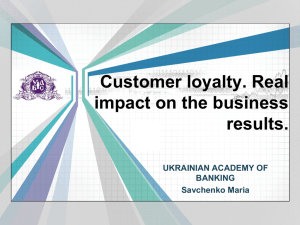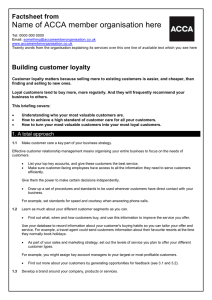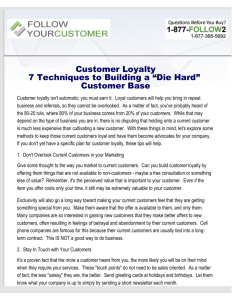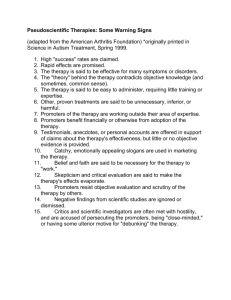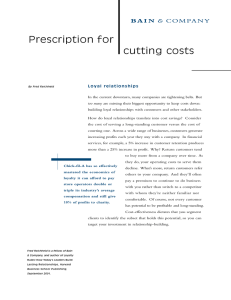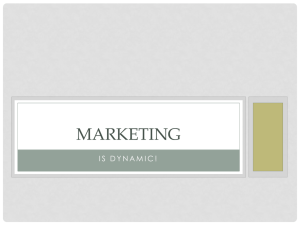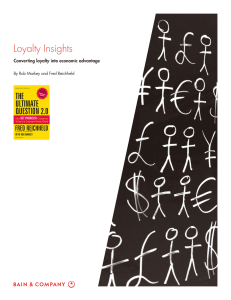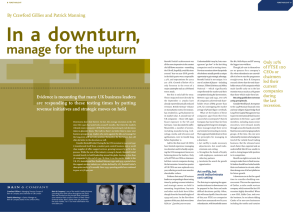Results One number to grow On our minds
advertisement
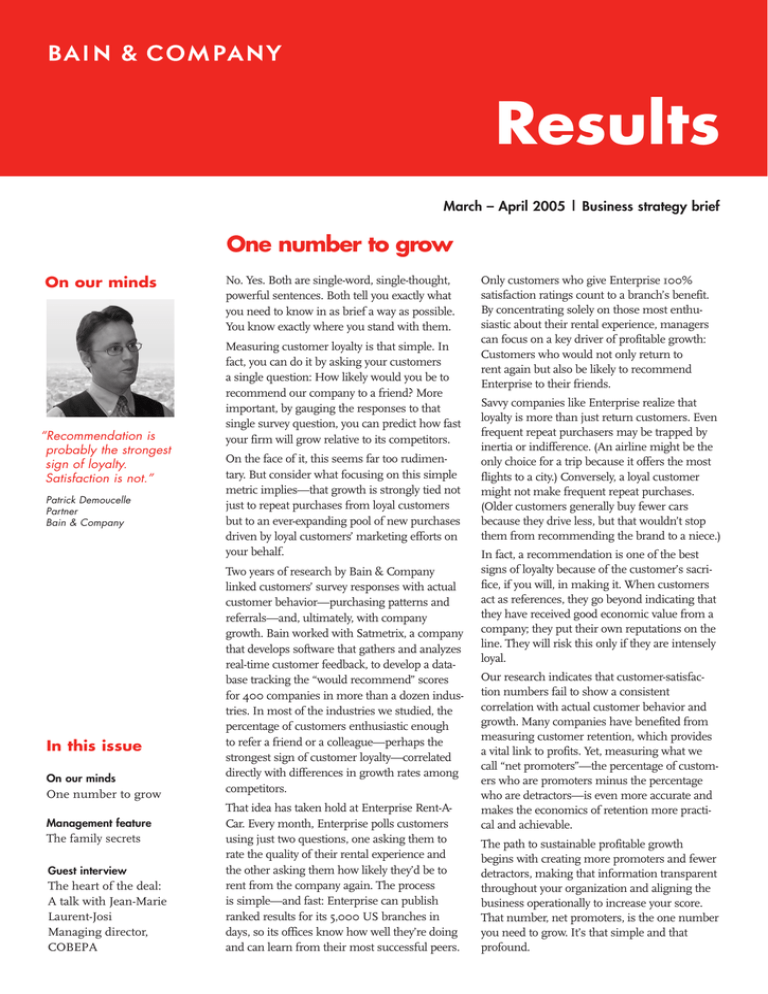
Results March – April 2005 | Business strategy brief One number to grow On our minds “Recommendation is probably the strongest sign of loyalty. Satisfaction is not.” Patrick Demoucelle Partner Bain & Company In this issue On our minds One number to grow Management feature The family secrets Guest interview The heart of the deal: A talk with Jean-Marie Laurent-Josi Managing director, COBEPA No. Yes. Both are single-word, single-thought, powerful sentences. Both tell you exactly what you need to know in as brief a way as possible. You know exactly where you stand with them. Measuring customer loyalty is that simple. In fact, you can do it by asking your customers a single question: How likely would you be to recommend our company to a friend? More important, by gauging the responses to that single survey question, you can predict how fast your firm will grow relative to its competitors. On the face of it, this seems far too rudimentary. But consider what focusing on this simple metric implies—that growth is strongly tied not just to repeat purchases from loyal customers but to an ever-expanding pool of new purchases driven by loyal customers’ marketing efforts on your behalf. Two years of research by Bain & Company linked customers’ survey responses with actual customer behavior—purchasing patterns and referrals—and, ultimately, with company growth. Bain worked with Satmetrix, a company that develops software that gathers and analyzes real-time customer feedback, to develop a database tracking the “would recommend” scores for 400 companies in more than a dozen industries. In most of the industries we studied, the percentage of customers enthusiastic enough to refer a friend or a colleague—perhaps the strongest sign of customer loyalty—correlated directly with differences in growth rates among competitors. That idea has taken hold at Enterprise Rent-ACar. Every month, Enterprise polls customers using just two questions, one asking them to rate the quality of their rental experience and the other asking them how likely they’d be to rent from the company again. The process is simple—and fast: Enterprise can publish ranked results for its 5,000 US branches in days, so its offices know how well they’re doing and can learn from their most successful peers. Only customers who give Enterprise 100% satisfaction ratings count to a branch’s benefit. By concentrating solely on those most enthusiastic about their rental experience, managers can focus on a key driver of profitable growth: Customers who would not only return to rent again but also be likely to recommend Enterprise to their friends. Savvy companies like Enterprise realize that loyalty is more than just return customers. Even frequent repeat purchasers may be trapped by inertia or indifference. (An airline might be the only choice for a trip because it offers the most flights to a city.) Conversely, a loyal customer might not make frequent repeat purchases. (Older customers generally buy fewer cars because they drive less, but that wouldn’t stop them from recommending the brand to a niece.) In fact, a recommendation is one of the best signs of loyalty because of the customer’s sacrifice, if you will, in making it. When customers act as references, they go beyond indicating that they have received good economic value from a company; they put their own reputations on the line. They will risk this only if they are intensely loyal. Our research indicates that customer-satisfaction numbers fail to show a consistent correlation with actual customer behavior and growth. Many companies have benefited from measuring customer retention, which provides a vital link to profits. Yet, measuring what we call “net promoters”—the percentage of customers who are promoters minus the percentage who are detractors—is even more accurate and makes the economics of retention more practical and achievable. The path to sustainable profitable growth begins with creating more promoters and fewer detractors, making that information transparent throughout your organization and aligning the business operationally to increase your score. That number, net promoters, is the one number you need to grow. It’s that simple and that profound.
